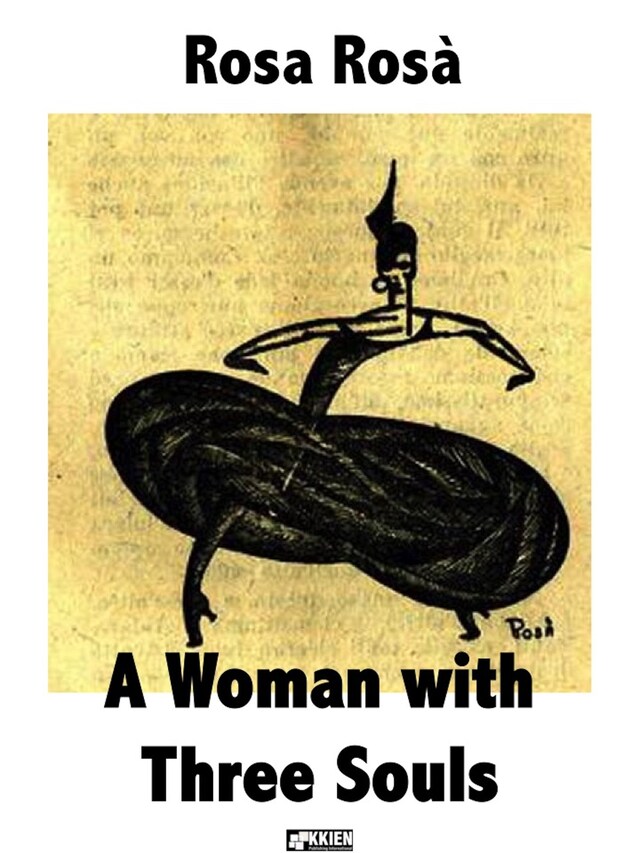
A woman with three souls
Om bogen
As a coherent development of the themes already expressed in the author's articles, A woman with three soulsis therefore an ironic prefiguration, in a futuristic and fantastic key, of an Eve of the future, incarnated, in literary fiction, in the featureless and "dusty" Giorgia Rossi who in a short period of time experiences, due to a psychic alteration caused by an electromagnetic accident, three personalities very different from her original nature (emblem of the cliché of the wife "good", "mild", "shy", resigned to their fate , incarnated in a body "that has never in any case aroused an erotic interest"). This personalities imply, respectively, symptoms of sensuality lacking any moral prejudice, a virile temperament and extraordinary sensitivity, of a mediumistic nature, amplified by "new senses irradiated immaterially in the infinite": a continuous escape from the constraints of daily banality.
Giorgina's stages, whom ternary structure of her soul is a reference to the magic force of the number that characterizes it, symbolize the process of evolution towards a state of higher, alchemical consciousness, which is reached thanks to the fusion of all senses in one, being able to cross them and to go beyond them.
Without knowing what the woman of the future will be, we need only to read the epilogue of the novel to reflect on the transformations that have already happened in our time and "not to be caught, by surprise, by the evolutionary fatality that looms".
Rosa Rosà, pseudonym of Edith von Haynau also Edith Arnaldi was an Italian naturalized writer and illustrator, exponent of Futurism.
Born in Vienna from an aristocratic family, she was educated at home by tutors and only in adulthood she attended the art school in Vienna against family advice. She met in 1907 and in 1908 she married the Italian writer Ulrico Arnaldi, with whom he had four children between 1909 and 1915. She approached the Futurist movement during the First World War, while her husband was at the battlefront.
In her literary and artistic activity she adopted the pseudonym of Rosa Rosà, from a homonymous Venetian town. She became interested in literature, design and graphics.
A woman with three souls (1918), is considered one of the first example of feminist science fiction literature.


